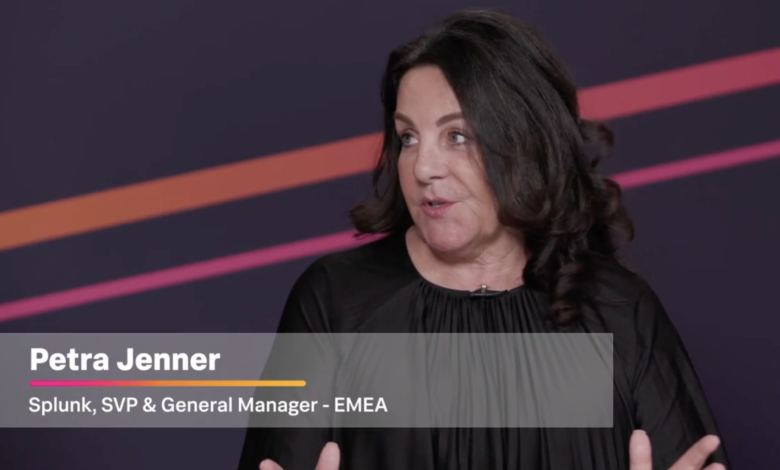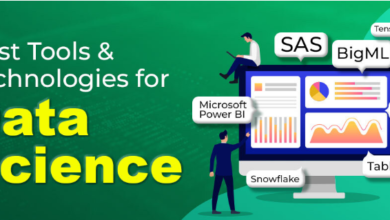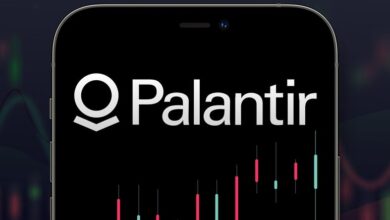Splunk .conf24 – the EMEA perspective

On the huge Las Vegas stages of Splunk’s .conf24 user conference, you would expect the likes of Cisco CEO Chuck Robbins and ‘Chief Splunker’ Gary Steele (now GM of Splunk, and President of Go-to-Market for all of Cisco) to talk up their relationship in the showiest terms. And they did, with apparent bonhomie and just a couple of awkward moments – such as when I asked Steele about his comment that Splunk would have to “prove it is still an innovator” now it is part of Cisco.
A quick recap for anyone who has not been following this story: Cisco announced its intention to buy the popular machine-data analytics company for $28 billion in November 2023. By March this year, the acquisition – the tech industry’s third largest – had already completed, with all 8,000 staff moving over to Cisco. For such a big deal, it moved surprisingly quickly.
Prior to .conf24, however (the first Splunk jamboree since purchase) the mood on the ground had been nervous – understandably. Would the networking giant break the software upstart, absorb its popular brand into a less popular one, and – above all – strip out the spirit of team innovation that Splunkers, quite genuinely, love?
Or, “How will we ensure we don’t f*** it up?” in the words of one senior Splunker over coffee.
So, away from the auditoriums of Vegas’ loopiest pleasure palaces – .conf24 took place in the fake Venice of the Venetian Resort, replete with singing gondoliers, chirruping slot machines, and statues of the Grateful Dead bears – what was the mood on the ground?
While it would be a scoop to report insurrection and mutterings in the ranks, the atmosphere seemed positive and upbeat: smiles, polite nods, whooping in the convention hall, and the kind of buzz that $28 billion will buy you. No doubt some stock options had come home to roost. (I’ve worked for popular companies that have been acquired by more boring ones, and the mood is invariably gloom.)
But how is the mood further afield?
Petra Jenner is Splunk’s Senior Vice President and General Manager for EMEA, reporting directly to Steele. She confirmed that Splunk’s spirit of optimism remains. According to her, Day One’s focus on continuity, roadmap, brand, and the ‘Chuck and Gary show’ – which positioned Robbins and Steele as a kind of high-tech Martin & Lewis – had been a hit with staff, partners, and customers. This year’s hit show on The Strip.
She told me:
For me, it’s particularly important that our customers and partners like it. And so far, everything I have heard has been extremely positive feedback. They liked the level of announcements and the transparency around the acquisition.
Some of our EMEA customers said they heard it from me, then they heard it from Chuck and Gary, and then, in the evening, they heard it again! But they said it was so natural and it seemed transparent to them.
A rare example of well-handled messaging from both the top down and the bottom up, it seems; perhaps driven more by Splunk’s knowledge of brand management than Cisco’s.
However, it is fair to say that the deal had the good fortune of completing nearly three months before .conf24, rather than during or after it. This sidestepped the risk of public nerves and uncertainty overshadowing the event, and allowed both companies to share the spotlight beneath a big Splunk logo. Let’s face it, it could all have worked out very differently.
So, is Splunk teaching its venerable parent about brand value, and how to be a 21st Century software company? Jenner said:
I’m not sure whether it’s teaching. But I would say, clearly, the declared objective of Cisco is to become stronger and grow its [$20 billion] software business, and I’m sure we are an essential part of that. That’s the way I would frame it. But absolutely, that’s where Splunk is strong.
Even so, Cisco – in the person of Chuck Robbins – seems to have handed an unusual amount of power to Splunk’s former CEO, Steele. Today, the latter is not just ‘Chief Splunker’, but also driving go-to-market objectives across the whole of Cisco. That must mean something: that Cisco believes he has a unique set of skills?
Jenner responded:
Yeah. Oh, absolutely. But the way in which Chuck seems to have handed a great deal of power – in a good way – to Gary, so he can lead, is how it is always going to work. From a software standpoint, it’s exactly the sort of upward reorganization [that is needed].
So, not only is it a remarkable step, but it is also very good for the confidence of both teams. And for the confidence of the customers, because the biggest question mark was, what’s going to happen to Splunk products?
Now customers can see that we have inherited the full-stack observability solution from Cisco, which is clearly a statement, right. I think that is exactly what the market needed. And I think it’s also the right thing to do.
The deal certainly offers advantages to both companies: for Cisco, it brings onboard a young, enthusiastic, brand-savvy team that understands how to innovate software at speed. Whereas Splunk gets all the connectivity, data access, and enterprise door-opening of a company that underpins much of the internet. But how will that play out in the more complex and changeable EMEA region?
Jenner said:
It’s going to be a big advantage in EMEA for two reasons. First, we [Splunk] can expand our regional and country coverage, because we are currently operating in, say, 20 countries. Now we can expand further. So, geo expansion will be one area of growth.
But then, of course, the other is that Cisco has a significantly broader customer base than Splunk, so it hopefully gives us an incremental growth opportunity too – if Cisco introduces us to customers that we haven’t been able to talk to.
Can Jenner identify key industries where this double-whammy might offer the biggest advantage?
We have been vertically strong in several markets, like Financial Services and Telecoms. But of course, Cisco is even stronger in Telecoms, so that could help, and also in Government. We’re strong in Government too, but not in all governments! And Manufacturing is another big market for us.
But for Splunk, it’s about trying to go into specific customers, where we had some resistance before or haven’t been successful. That, for me, is the biggest synergy. And that’s what we have to build over the coming months.
Currently, we are addressing only a subset of Cisco’s customers. But, very slowly, we are offering business support to the Cisco teams.
She added:
So, revenue synergies, but also product synergies. I would say we complement each other extremely well. Normally [in these cases] you have a lot of businesses overlap, but in this case, it’s more like we are complementing each other.
Even so, there is the unverified figure mentioned on the conference stage of a 75% crossover in Cisco and Splunk partners – albeit in slightly different areas of the business. Is that correct? Jenner said:
Yes, but in EMEA it’s more like 85%. We have almost the same partners, but sometimes speak to different people. They [Cisco] have more value-added resellers, whereas we probably have a stronger footprint in systems integration. That not a judgement on what is good or bad, it’s just that the nature of our businesses is a bit different.
Away from channel matters, one area where Europe is significantly different to the US is its determination to regulate in another area of Splunk and Cisco’s portfolios: AI. How does that difference in focus play with Splunk, and with a more traditional business, like Cisco?
Jenner said:
I can’t speak for Cisco, because when it [the EU’s AI Act] came out, we were still only Splunk. But our policy people appreciate the AI Act. There was no objection from our side, because regulation is needed. That’s what I heard everyone saying.
But regulation is not necessarily only the AI Act. There are other areas too, such as cybersecurity and data privacy. Some parts of Europe’s vision have been softened in these areas and I think the outcome is now more positive for vendors.
But the question now is, what comes next?
My take
Indeed. Meanwhile, for Splunk and Cisco, the messaging, at least, is strong. But will that singularity of focus and that shared journey be just as pronounced, come next year’s customer event? Or will the needle of power have begun swinging back to Cisco?
By then, the integration strategy will be nearing completion. At that point, the reality will be visible. Will we still be talking about Splunk and Cisco as linked, but separate entities? Tune in then to find out.



